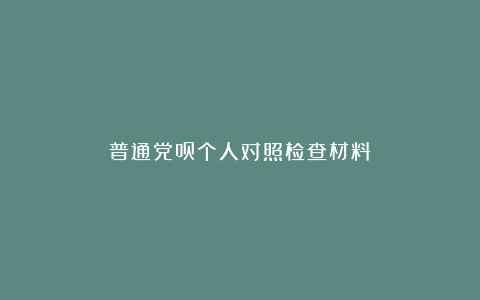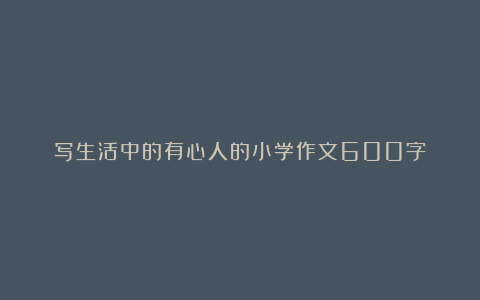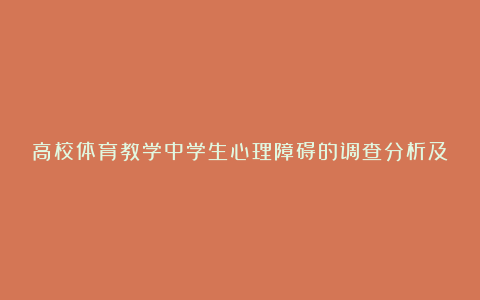提高雅思阅读正确率的热门问题答疑
- 文档
- 2024-07-10
- 164热度
- 0评论
下面是小编为大家整理的提高雅思阅读正确率的热门问题答疑,本文共3篇,欢迎大家借鉴与参考,希望对大家有所帮助。

关于提高雅思阅读正确率的7个热门问题答疑
问题:我觉得是非无判断题好抽象啊,老师能不能教我点技巧啊。
回答:这种题其实真的很好做, 你要学会分析判断题中的定位词和考点词。 前者是用来帮助你把为题定位回文章的具体段落的具体句子中的, 考点词则是判断的根本, 它才是你要进行判断的内容。 另外判断题的时候, 千万不要去翻译每道题, 这是做判断题一大忌讳。 千万不要 “想太多”:)
问题:我目标是6.5,每科不低于6。听力,口语,写作都不错,唯独阅读正确率低,做的速度也很慢。特别是段落大意进行匹配的最差。还有最后一个半月的复习时间,跪求指点!!
回答:哈哈,你的听力, 口语, 写作成绩都不错说明你的英文基础很好了。 那么关于你提的阅读正确率低和做题速度慢的问题, 可能是你的做题方法出现了问题。 做阅读题诗一定找找准定位词, 因为答案就在文章出现定位的地方附近, 这样可以大大提高做题正确率和速度。关于段落大意这种题型, 一定要搞清楚这种题是考你找主旨句的能力, 而不是分析段落大意。 配对题中的段落配信息题属于难题, 配对题中的其他题都还好。
问题:我想问下,在阅读中会有很多生词影响理解,这时候该怎么办呢?
回答:几点建议
(1)增加你的单词量
(2)把生词当成定位词
(3)如果生词是动词或者形容词, 判断方向性就可以, 不知道具体意思不影响你把题做对
(4)根据上下句猜词, 或者判断方向性足以
(5)一定不要在做题时, 遇到生词就查字典,从而培养良好的心里素质和做题态度
问题:最近在复习雅思,现在做剑桥3.4的阅读部分,做下来感觉一般,大致错题量在13-15左右,不知道怎么办了?因为我知道阅读如果考不高的话,写作和口语一般成绩不高的,这样导致总分就不会很高了,我目标总分是7份,不知道如何进步达到目标
回答:建议你在做题前好好研究一下课上老师的讲义, 阅读中各种题型都有相应的做题方法; 另外就一篇文章而言,做题的先后顺序也要具体情况具体分析: 1 有的题目的顺序和文章段落顺序相同, 2 有的题目不是按照文章段落顺序出的, 那以文章段落为单位去做题,即加快了你的做题速度也提高了正确率,
问题:老师好。我每次看感觉自己读懂了,为何每次做list of heading 类题目总是错很多?还有就是另一类题目,问以下信息包含在哪段里,也总是做不对。这两个很影响成绩
回答:看来这两种题行让很多考生头疼,我在这里简单说一下 list of heading 考的是找主旨句的能力, 注意三种句型 (定义句型, 转折句型, 结尾句型)这种题型经过培训,做题时会有很明显的改善。 关于段落配信息这种题难在乱序,所以一定要划准定位词, 另外建议做题时有个好的心态,个别题做不出来适当放弃, 因为考试有时间限制, 不能丢了西瓜拣芝麻,有舍才有得。
问题:雅思阅读 的 T/F/NG 该怎么复习?最近在准备雅思考试,阅读三篇一般错6(T/F 题目相对少的时候) ;一般错11-13个(当三篇中该题出现10--12个)
请问有没有什么技巧啊 在准备该题型的时候? 如何判断到底题目在文章中没有提及还是错误?
回答:这个问题, 之前有同学提到了。判断题是属于雅思阅读中技巧行很强的题, 那么在做判断题的时候你要区分题中的定位词,和考点词。
针对你提出的不会区分F/NG的问题, 这里我举2个例子:考点词都是ONLY,但是答案不同
原文: Lili and Lucy went to school. 题目: Only Lucy went to school. (F)
原文说莉莉和露西去学校了, 题目说只有露西去学校了, 这道题就错了。 (实体绝对化----F)
原文: Lucy went o to school.
题目: Only Lucy went to school. (NG) 原文中说露西去学校了 (一种可能性是:只有露西自己去学校了; 还有一种可能性是:除了露西还有其他同学去学校了, 而题目中把两种可能性的一种绝对化了,答案是NG)------可能性绝对化----NG
如果你有时间的话, 建议你报个阅读班, 课上老师会对这种题型有非常详细的讲解。
问题:考了两次,阅读都是6,剑桥1-7都做了2遍了,真的是走投无路了!救救我吧
回答:看来你是到了雅思阅读瓶颈期了, 我建议你:
(1)把做过的剑桥1---7中遇到的生词背下去, (2)反复推敲错题, 从中找到题做错的原因, (3)总结题和文章中发生同意转换的词,短语结构等等, 比如 like--- be similar to (4) 仔细研究阅读单项技巧 (5)在限制的时间内, 比如:50分钟内, 完成套题, 考前做5-10套题就可以。
雅思阅读材料:交通拥堵下的轮滑交警
There's the canine unit and the equine unit and now police in car-congested Jakarta, where gridlock is legendary, have set up a new force to combat traffic jams -- the in-line skate unit.
With a run-down public transportation system and some 14 million residents, Jakarta is known to be one of the most difficult cities in Asia to navigate, even for the traffic police who is often stymied by the congestion.
But the 20 officers who have spent the past four weeks weaving through the streets on their skates don't have to worry about gridlock any more.
“We park our vehicles as close as we can to the traffic jams. Then we go into the jam area on rollerblades to direct the traffic,” said Commander Sutirto who heads the special squad.
Decked out in helmets, knee and elbow pads, the skating police received a month of intensive training. Many officers said their biggest challenge was staying upright on the city's bumpy and sometimes pock-marked roads.
Some motorists welcomed the rollerblading officers as a time-saving solution, but others said the police needed to crack down on the bad driving that causes the jams rather than just resolve them.
“Motorists must be disciplined. They must not cross into other people's lanes,” said motorist Eko Juli.
Getting around sprawling Jakarta and suburbs is a time-consuming and often arduous feat.
Traffic crawls along at a frustrating snail's pace during rush hours and is often chaotic due to the rising number of vehicles and frequent flooding.
Jakarta's governor has promised to tackle the traffic problem by building more busways, a monorail and a subway. But a remedy is unlikely any time soon as it will cost billions of dollars and take several years to complete.
雅思阅读材料:不仅仅书中才有“黄金屋”
A 12th-grader wrote a college admissions essay about wanting to pursue a career in oceanography. Let’s call her Isabella. A few months ago, we edited it in my classroom during lunch. The writing was good, but plenty of 17-year-olds fantasize about swimming with whales. Her essay was distinctive for another reason: Her career goals were not the highlight of the essay. They were just a means of framing her statement of purpose, something surprisingly few personal statements actually get around to making.
一名级的高中学生写了一篇申请大学的文章,描述她想要从事与海洋学相关的职业。我们就叫她伊莎贝拉好了。几个月前,我们利用午餐时间在我的教室对文章进行了润色。文章写的不错,但充满了17岁少女的幻想,比如与鲸鱼结伴遨游。她的文章与众不同的另一个原因是:她的职业目标不是这篇文章的重点,只是完成她目的陈述的表达手法,这点很令人惊讶,因为事实上很少用这种方式写个人陈述。
The essay’s core concerned the rhetoric that educators had used to motivate her and her peers—other minority students from low-income communities. She’d been encouraged to think of college foremost as a path to socioeconomic mobility. Since elementary school, teachers had rhapsodized about the opportunities that four years of higher education could unlock. Administrators had rattled off statistics about the gulf in earnings between college graduates and those with only high-school diplomas. She’d been told to think about her family, their hopes for her, what they hadn’t had and what she could have if she remained diligent. She’d been promised that good grades and a ticket to a good college would lead to a good job, one that would guarantee her financial independence and enable her to give back to those hard-working people who had placed their faith in her.
文章的核心是围绕教育工作者的一些言论,他们一直用这些言论激励她和她的同龄人——来自低收入社区的少数民族学生。不断有人给她洗脑,上大学是位的,是改善社会经济地位的坦途。从上小学开始,老师就极力宣扬四年的大学生活能打开机遇的大门。学校领导能飞快地列举出各种统计数据,说明大学毕业生和只有高中文凭的那些人在收入方面的巨大差距。总是有人对她说,想想你的家人,想想他们寄予的厚望,如果能一直努力读书就会得到父辈无法拥有的东西。只要成绩好,拿到顶尖大学的录取通知书,保证就会有个好工作,有了好工作,不仅自己经济上能够独立而且还有能力回报亲友,这些人一直努力工作并且对她充满信心。
Thankfully, Isabella decried this characterization as shortsighted and simplistic. My guess is that only students like her ever have to hear it.
值得庆幸的是,伊莎贝拉批评这类说辞是目光短浅和头脑简单。我猜大概只有像她这样的学生才会听到这些。
The black and Latino kids I teach live in Inglewood and West Adams in Los Angeles. Their parents are house-cleaners, truck drivers, and non-union carpenters. When administrators, counselors, and teachers repeat again and again that a college degree will alleviate economic hardship, they don’t mean to suggest that there is no other point to higher education. Yet by focusing on this one potential benefit, educators risk distracting them from the others, emphasizing the value of the fruits of their academic labor and skipping past the importance of the labor itself. The message is that intellectual curiosity plays second fiddle to financial security.
我教的那些非洲裔和拉美裔学生都住在洛杉矶的英格尔伍德和西亚当斯。他们父母从事的工作是清洁工、卡车司机和非工会的木匠。当校长、辅导员和老师一次又一次地重复着,有了大学文凭会改善经济窘迫的情况,他们并不是指高等教育除了这点就没别的用处了。但是当只专注在获取这种潜在利益时,教育工作者们让学生注意不到别的事物,他们强调知识累积后成果的价值却忽略了知识累积本身的重要性。这种做法传递的消息是,求知欲排在经济保障之后。
While Isabella’s essay acknowledged her lack of economic advantages and portrayed with sensitivity her parents’ struggles, she was eager to focus first on nurturing her intellectual passion. She detailed how her curiosity about sea urchins and other marine life had led to a passion she wants to sustain through college and a subsequent career. College will ferry her to her intellectual destiny, not a financial windfall. She’ll make her life’s work what she wants to do, not just what she is able do.
虽然伊莎贝拉的文章承认她没有经济优势也敏感地描绘了她父母生活的困顿,但她盼望能将重心首先放在培养自己的求知欲上。她详细讲述了对海胆等海洋生物的好奇,这种好奇激发了她对海洋生物学的热情,她希望能在未来的大学生活和随后的职业生涯中一直保持这份热情。大学会把她送到知识海洋的彼岸,而不是送来意外的横财。她要让自己毕生的职业是她想要去做的,而不是她能去做的。
My students are understandably preoccupied with money. They don’t have the privilege to not worry about it. They fantasize about what their future wealth will permit them to enjoy. They dream about specific models of cars in certain colors and gargantuan houses in particular neighborhoods and opulent meals at their favorite restaurants any time they wish. Many swoon over the East Coast liberal arts colleges they visit on the special trips that my school is thoughtful enough to arrange. Colleges like Swarthmore and Haverford fly students like Isabella out during college applications season. A few are accepted but most attend state schools, which, especially in California, can provide excellent educational opportunities. The irony, though, is that many of these students aspire to go to a liberal-arts school but don’t necessarily understand its significance. They’re drawn to sleepy quads, weathered brick, and cascading ivy, but they are resolutely pre-professional in spirit.
可以理解我的学生们为什么十分在意金钱。他们没有资本不去担心。他们幻想着将来有钱可以让他们好好享受生活。他们梦想拥有某种颜色的限定款汽车、位于特殊社区的大豪宅以及随时可以在喜欢的餐厅享用丰盛的美食。许多学生参观东岸文科学院时几乎为之疯狂,我所在的学校用心良苦地安排了很多这种参观活动。大学申请季节时,斯沃斯莫尔和哈弗福德等大学会让伊莎贝拉这样的学生飞过去面试。少数几名学生会被东岸大学录取,但绝大多数学生会进入公立大学,尤其是加利福尼亚的大学,这些学校可以提供良好的受教育机会。但具有讽刺意味的是,很多向往文科学院的学生不一定了解这类大学强在哪里。吸引他们的是安静的校园、饱经风雨的墙砖和层层叠叠的常春藤,但在内心他们已经毅然踏入职前教育阶段。
In contrast, at the private school I attended for the last two years of high school, my classmates thought about what they wanted to learn in college, not only what they wanted to become. Some knew medical or law school loomed in the future, but they thought about the work in a different way. My privileged classmates enjoyed money, from what I could tell. A few reveled in their cars and clothes, but most appeared to take it for granted. They didn’t talk about it. Instead, a future doctor talked about working at the CDC to fight public health epidemics. A future lawyer envisioned starting a defense firm to provide a service to the hometown community. Most of us wanted to do something special.
与此相反,在我高中两年就读的私立学校,我的同学们考虑的是他们想在大学里学到什么,不仅仅只是他们想要从事的职业。有的同学知道将来很可能就读医学院或法学院,但他们以完全不同的方式思考未来。我那些有钱有势的同学很享受金钱带来的快乐,这点我看得出来。有人喜欢汽车,爱买衣服,但大多数人似乎觉得这理所当然。他们不谈论金钱。相反,未来的医生谈论在疾病预防控制中心的工作,治疗影响公众健康的流行病。未来的律师设想开办律师事务所服务家乡的社区。我们当中的绝大多数人想要做一些特别的事。
My students’ fantasies of the actual work they’d do in a well-paid professional capacity are vague by comparison—practicing law without knowing the difference between civil and criminal litigation or how to prepare for law school, doing business without an understanding of the nuts and bolts of entrepreneurship. While the vagueness stems from the lack of models in their communities, it also comes from the lack of imagination with which mentors have addressed their professed college plans. Students hear that being a doctor is great because doctors can make money, enjoy respect, and have a great life.They don’t hear that being a doctor is great because doctors possess the expertise to do great things.
相比之下,我那些希望从事高薪职业的学生们对工作实质毫无概念——想当律师的不了解民事诉讼和刑事诉讼的差别,也不知道读法学院要如何准备;想经商的不知道创业的各种细节。虽然这种茫然的根源来自他们的生活圈子里没有可以模仿的对象,但也由于缺乏想象力,因为导师们已经一手包办了他们自称的大学规划。这些学生听到的是,当一名医生很棒,可以赚大钱,受人尊敬,能过上富足的生活。他们没听到的是,当一名医生很棒的原因是,医生所具备的专业知识能让他们去做很棒的事。
When schools deemphasize the intellectual benefits of higher education, students become less imaginative about their futures.
当学校弱化高等教育对智力发展的重要性时,学生们对未来也变得不再富有想象力。
The rhetoric echoes the oft-cited work of Jean Anyon, an education researcher who died in September. Studying elementary schools, Anyon looked at how schools can condition kids for positions in life. She saw that schools teaching the children of affluent families prepared those kids to take on leadership roles and nurtured their capacity for confident self-expression and argument.Schools teaching children from low-income families focused on keeping students busy and managing behavior. A middle-class school deemphasized individual expression and in-depth analysis and rewarded the dutiful completion of specified rote tasks. In each case, according to Anyon, a “hidden curriculum” has prepared students for a future role in society. Some students learn to take orders and others learn to chart a course of action and delegate responsibility. School can either perpetuate inequity through social reproduction or have a transformative effect and help students transcend it.
这类言论也符合大家经常提及的吉恩?安扬(Jean Anyon)的研究,这位教育研究人员于今年9月去世了。在针对小学的研究过程中,安扬注意到学校是如何限定了孩子们的社会地位。她发现,在富裕家庭孩子就读的学校,老师教这些学生如何承担领导角色并培养他们充满自信地自我表达和演讲辩论。对低收入家庭的儿童,学校教育的重点放在让学生总是忙忙碌碌而且规矩听话。而中产阶级家庭孩子就读的学校弱化个性展示和深入分析,奖励学生尽职地完成指定的机械工作。根据安扬的研究,学校针对不同情况制定的“隐性课程”为学生们量身定制了未来的社会角色。有些学生学会服从命令,其他学生学会规划执行方案并且层层落实责任。学校可以通过社会复制让这种不公平延续下去,或者选择努力变革从而帮助学生超越它。
The rhetoric Isabella has heard about the purpose of college has a hidden message as well. When school environments casually yet consistently deemphasize the intellectual benefits of higher education, students become less imaginative about their futures. According to ACT’s College Choice Report from November , 32 percent of students pick a college major that doesn’t really interest them. The same study suggests that students are less likely to graduate when they do this. As high school educators know, good students have less trouble getting into selective schools than they do graduating from them – especially first-generation minority college students like Isabella and her classmates.
伊莎贝拉听到的大学目标这类言论还潜藏了一个信息。当学校看似随意但不停弱化高等教育对智力发展的重要性时,学生对未来也变得不再富有想象力。根据11月ACT(美国大学入学考试)的大学选择报告,32%的学生选择了他们并不真正感兴趣的专业。这份研究还表明,做出这种选择的学生顺利毕业的可能也较小。高中老师都知道,好学生考取重点大学不难,但顺利毕业就难说了——尤其是少数民族的代移民大学生,比如伊莎贝拉和她的同学们。
College should be “sold” to all students as an opportunity to experience an intellectual awakening. All students should learn that privilege is connected to the pursuit of passions. People are privileged to follow their hearts in life, to spend their time crafting an identity instead of simply surviving. Access to higher education means that your values and interests can govern your choices. It makes sense that privileged 18-year-olds who have already learned that lesson gravitate to liberal-arts colleges. I would prefer not to live in a country in which rhetoric about the purpose of college urges kids from privileged backgrounds to be innovators and creators while the poor kids who do very well in school are taught to be educated, capable employees. Isabella figured it out on her own – much as she’s managed to ace her classes without academic help outside of school. To achieve this goal more broadly, though, we need to proactively teach our most marginalized students that honing an intellectually curious frame of mind is as essential to leading an invigorating working life as ambition and work ethic.
大学应该向所有学生“灌输”的是,有机会体验知识带来的觉醒。所有的学生都应该知道,享有特权与追求爱好息息相关。人们有权利按照心灵的指引生活,用生命打造自己独具的特性,而不仅仅是为了生存。接受高等教育意味着你的价值观念和兴趣爱好可以左右你的选择。享有特权的这些18岁孩子们已经得到了被文科学院吸引的教训,这很正常。我不愿生活在这样的国家,夸夸其谈大学的目的就是让有钱有势的孩子成为革新者和创造者,而品学兼优的穷孩子则被教育成有知识的合格打工者。伊莎贝拉靠自己明白了这个道理——就像她没有上过校外辅导班门门功课照样拿优一样。但为了让更多的学生也同样明白,我们需要主动告知我们最被边缘化的学生,想要拥有愉快的职业生涯,培养好奇心和求知欲以及保持进取心和职业道德都是缺一不可的。
雅思阅读
关于提高雅思阅读正确率的7个热门问题答疑
关于提高雅思阅读正确率的7个热门问题答疑为大家带来网友提出的关于如何提升雅思阅读正确率的几个问题的解答。这些问题中有包含雅思阅读备考复习阶段的方法论的,有包含在做某一类阅读题型中遇到的困难的。如果你也正在为怎样提高雅思阅读正确率而苦恼,不妨参考参考以下的内容。
问题:我觉得是非无判断题好抽象啊,老师能不能教我点技巧啊。
回答:这种题其实真的很好做, 你要学会分析判断题中的定位词和考点词。 前者是用来帮助你把为题定位回文章的具体段落的具体句子中的, 考点词则是判断的根本, 它才是你要进行判断的内容。 另外判断题的时候, 千万不要去翻译每道题, 这是做判断题一大忌讳。 千万不要 “想太多”:)
问题:我目标是6.5,每科不低于6。听力,口语,写作都不错,唯独阅读正确率低,做的速度也很慢。特别是段落大意进行匹配的最差。还有最后一个半月的复习时间,跪求指点!!
回答:哈哈,你的听力, 口语, 写作成绩都不错说明你的英文基础很好了。 那么关于你提的阅读正确率低和做题速度慢的问题, 可能是你的做题方法出现了问题。 做阅读题诗一定找找准定位词, 因为答案就在文章出现定位的地方附近, 这样可以大大提高做题正确率和速度。关于段落大意这种题型, 一定要搞清楚这种题是考你找主旨句的能力, 而不是分析段落大意。 配对题中的段落配信息题属于难题, 配对题中的其他题都还好。
问题:我想问下,在阅读中会有很多生词影响理解,这时候该怎么办呢?
回答:几点建议
(1)增加你的单词量
(2)把生词当成定位词
(3)如果生词是动词或者形容词, 判断方向性就可以, 不知道具体意思不影响你把题做对
(4)根据上下句猜词, 或者判断方向性足以
(5)一定不要在做题时, 遇到生词就查字典,从而培养良好的心里素质和做题态度
问题:最近在复习雅思,现在做剑桥3.4的阅读部分,做下来感觉一般,大致错题量在13-15左右,不知道怎么办了?因为我知道阅读如果考不高的话,写作和口语一般成绩不高的,这样导致总分就不会很高了,我目标总分是7份,不知道如何进步达到目标
回答:建议你在做题前好好研究一下课上老师的讲义, 阅读中各种题型都有相应的做题方法; 另外就一篇文章而言,做题的先后顺序也要具体情况具体分析: 1 有的题目的顺序和文章段落顺序相同, 2 有的题目不是按照文章段落顺序出的, 那以文章段落为单位去做题,即加快了你的做题速度也提高了正确率,
问题:老师好。我每次看感觉自己读懂了,为何每次做list of heading 类题目总是错很多?还有就是另一类题目,问以下信息包含在哪段里,也总是做不对。这两个很影响成绩
回答:看来这两种题行让很多考生头疼,我在这里简单说一下 list of heading 考的是找主旨句的能力, 注意三种句型 (定义句型, 转折句型, 结尾句型)这种题型经过培训,做题时会有很明显的改善。 关于段落配信息这种题难在乱序,所以一定要划准定位词, 另外建议做题时有个好的心态,个别题做不出来适当放弃, 因为考试有时间限制, 不能丢了西瓜拣芝麻,有舍才有得。
问题:雅思阅读 的 T/F/NG 该怎么复习?最近在准备雅思考试,阅读三篇一般错6(T/F 题目相对少的时候) ;一般错11-13个(当三篇中该题出现10--12个)
请问有没有什么技巧啊 在准备该题型的时候? 如何判断到底题目在文章中没有提及还是错误?
回答:这个问题, 之前有同学提到了。判断题是属于雅思阅读中技巧行很强的题, 那么在做判断题的时候你要区分题中的定位词,和考点词。
针对你提出的不会区分F/NG的问题, 这里我举2个例子:考点词都是ONLY,但是答案不同
原文: Lili and Lucy went to school. 题目: Only Lucy went to school. (F)
原文说莉莉和露西去学校了, 题目说只有露西去学校了, 这道题就错了。 (实体绝对化----F)
原文: Lucy went o to school.
题目: Only Lucy went to school. (NG) 原文中说露西去学校了 (一种可能性是:只有露西自己去学校了; 还有一种可能性是:除了露西还有其他同学去学校了, 而题目中把两种可能性的一种绝对化了,答案是NG)------可能性绝对化----NG
如果你有时间的话, 建议你报个阅读班, 课上老师会对这种题型有非常详细的讲解。
问题:考了两次,阅读都是6,剑桥1-7都做了2遍了,真的是走投无路了!救救我吧
回答:看来你是到了雅思阅读瓶颈期了, 我建议你:
(1)把做过的剑桥1---7中遇到的生词背下去, (2)反复推敲错题, 从中找到题做错的原因, (3)总结题和文章中发生同意转换的词,短语结构等等, 比如 like--- be similar to (4) 仔细研究阅读单项技巧 (5)在限制的时间内, 比如:50分钟内, 完成套题, 考前做5-10套题就可以。
雅思阅读中“颜色”的别样涵义
1. GREEN:
(0)He is still green to his job.
他对其工作尚无经验。
(1)Do you see any green in my eye?
你认为我幼稚可欺吗?
(2)lf you want to be a successful gardener,of course you’ve gotto have green fingers.
假如你想当个称职的园工,那你就得有园艺技能。
(3)She is a green hand in teaching English.
在英语教学中,他还是个生手。
(4)Mother gave us the green light to go on the camping trip this summer.
妈妈准许我们今年夏天去野营一次。
(5)He has a green wound in the left breast.
他左胸上有一新伤口。
2. BLUE:
(6)He is proud of his blue blood.
他因出身名门贵族而骄傲。
(7)Things are looking extremely blue.
情况极其不妙。
(8)True blue will never stain.
真金不怕火炼。
(9)She ran and ran until she was blue in the face.
她跑啊跑啊,累得脸色发青精疲力竭。
(10)lt’s once in a blue moon that you get a chance like that.
你得到的是个千载难逢的机会。
(11)He can read like a blue streak.
他看书极快。
(12)The bad news came like a bolt out of the blue.
这消息来得如青天霹雳。
(13)John arrived out of the blue.
约翰突然来了。
(14)A rainy day always gives me the blues.
下雨天总是使我心情抑郁。
3 BROWN:
(15)The leaves browned slowly.
树叶渐渐枯了。
(16)We are all of us done brown.
我们都上当了。
(17)When she gives a dinner party,she always does it up brown.
她举行宴会,总是办得很出色。
(18)l’m browned off,sitting here all day with nothing to do.
我整天坐在这儿没事干,感到抑郁无聊。
(19)Aim at one bird, don’t blaze into the brown.
瞄准一只打,不要射击鸟群。
(20)l tried to attract his attention,but he was in a brown study.
我企图吸引他的注意力可是他仍在沉思默想。
4. BLACK:
(21)The black dog is over him.
他意气消沉。
(22)Tom is the black sheep of his family.
汤姆是个败家子。
(23)Next time l see him, l’ll give him a black eye.
下次我见到他一定打他一顿。
5、RED:
(1)The president was treated to the redcarpet in Rome.
总统在罗马受到了隆重的接待。
(2)It was a red-letter day in the history of Chinese revolution.
这是中国历史上值得纪念的日子。
(3)A thief was caught red-handed in the act of breaking open alock.
一个窃贼在砸开锁时被当场抓获。
(4)You said that l am very good. ls my face red?
你说我很好,真使我难为情了。
(5)When he started criticizing my work,l really saw red.
当他批评 我的工作时,我就冒火、发脾气。
(6)There is too much red-tape in obtaining an identity card.
领身份证的手续实在太繁琐了。
(7)They had to sell the firm because for years they had operated it in the red.
因为经营这家公司几年来一直亏损,所以他们只好把它卖掉。
(8)We’ll soon be out of the red.
我们很快就会扭亏为盈。
(9)Every time he comes to New York,he wants to paint the town red.
每次来纽约,他都要痛饮一番。
雅思考试阅读辅导资料
阅读段落
It was not until the eighteenth century that Europe became seriously interested in the possibilities of using the rocket itself as a weapon of war and not just to propel other weapons. Prior to this, rockets were used only in pyrotechnic displays. The incentive for the more aggressive use of rockets came not from within the European continent but from far-away India, whose leaders had built up a corps of racketeers and used rockets successfully against the British in the late eighteenth century. The Indian rockets used against the British were described by a British Captain serving in India as ‘an iron envelope about 200 millimeters long and 40 millimeters in diameter with sharp points at the top and a 3m-long bamboo guiding stick’. In the early nineteenth century the British began to experiment with incendiary barrage rockets. The British rocket differed from the Indian version in that it was completely encased in a stout, iron cylinder, terminating in a conical head, measuring one meter in diameter and having a stick almost five meters long and constructed in such a way that it could be firmly attached to the body of the rocket. The Americans developed a rocket, complete with its own launcher, to use against the Mexicans in the mid-nineteenth century. A long cylindrical tube was propped up by two sticks and fastened to the top of the launcher, thereby allowing the rockets to be inserted and lit from the other end. However, the results were sometimes not that impressive as the behavior of the rockets in flight was less than predictable.
段落大意
本段介绍了欧洲火箭弹的发明受印度影响,并介绍了印、英、美三国最早的火箭弹。
阅读笔记
Europe :
1 Until the 18th century, interested in using the rocket itself as a weapon of war.( incentive came from India)
2 Prior to this were used only in pyrotechnic displays.
Indian rockets:
1. Used against the British in the late 18th century.
2. An iron envelope; length: 200 mm, diameter: 400 mm; sharp points at the top, a 3m-long bamboo guiding stick.
British incendiary barrage rockets:
1 In the early 19th century.
2 Encased in a stout, iron cylinder, terminating in a conical head;
Diameter: 1m, a stick almost 5m-long.
Americans rocket:
1. Against the Mexicans in the mid-19th century.
2. Own launcher.
3. A long cylindrical tube was propped up by two sticks and fastened to the top of the launcher.
【雅思阅读高分技巧】提高填空题正确率的5个技巧
雅思阅读考试的填空题怎么做
1、首先我们要仔细阅读第一句话,找出它在文章中的位置在哪里,通常是和原文某段话的第一句相对应.如果题目要求中已经指出了摘要的出处,则此步可以略去不做。同时,特别注意一下空格前后的词,然后到原文中寻找对应的。
2、特别注意题目要求中是否有字数限制。若要求从原文选词或自己写词,会有字数要求,如Use ONE OR TWO WORDS等,答案必须满足这个要求。
3、若从原文选词,只能选原文中连续的几个词,不能改变它们的顺序,切忌。
4、从选项中选词,要注意看题目要求是写答案本身,还是写选项前的代表字母。 选项前有代表字母的,肯定是要求答代表字母。最近的考试中,选项前大部分都有代表字母。
5、一般有字数限制,选原文中的词不能改变他们的顺序,越是生词越可能是答案。
雅思阅读的做题顺序也有技巧
具体方法如下:
一、首先决定要以什么样的顺序做题。真正的雅思考试并不是想象中的由易到难,很有可能一开始的文章就很难。设想,如果用30分钟先解决一道难题,再用剩下的30分钟去完成两道简单的题目,效果注定不好!试举剑桥4中TEST 2 为例,三篇文章分别 “lost for words”, “alternative medicine in Australia”, “play is a serious business”.乍一看第三篇文章题目是最简单的,实际上它反而是最难的。
二、题型决定做题顺序,而不是题目。“lost for words”题型分别是:summary, 人名理论matching, yes/no/not given. “alternative medicine in Australia”题型分别是:multiple choices, yes/no/not given, 填空题. “play is a serious business”题型分别是:信息段落配对,多选多,人名理论配对。初步分析题型后还可以细化,理清做题思路。第一篇文章难度适中,summary 属主旨类型题建议先做,同时可以把人名全部找到以节省时间。matching题中出现五对五配对还有NB。第二篇文章题目虽难但是引言部分交待很清楚,属简单的题目。填空题实属数字游戏,整篇文章完全按顺序出题。第三篇文章难度系数较大,信息段落配对难把握,之后的人名理论配对干扰选项过多,从一开始相当于八选一。这样分析下来,我们的做题顺序应该是“Passage 2/1/3”。
三、掌握技巧,灵活运用。题型没有绝对的难易之分,对其他考生难也许对你反而容易,要结合自己的实际情况。可以先做送分题“表格填空,图形题,完成句子”。在五大主流题型中,配对题比较费时,其中信息和段落配对最花时间,建议放在最后。而作为主旨的heading 和summary 可考虑先做,因为完成主旨题型后文章大致的内容和结构都可以掌握,对于细节题的定位会方便很多。
雅思考试像是一场战斗,应该灵活运用作战的策略和方法,后期更需要成套的阅读训练。如果能够运用这些提高效率节省时间的方法,有助于学生信心的塑造和雅思分数的提高。
雅思阅读:平时的积累成就阅读高分
雅思考察实际运用能力
传统的四六级考试与雅思的考试方向是不一样的。雅思考究的是英语的应对能力,更注重对英语的应用和表达。英语不仅仅是一门学科,更是一门语言,一种工具,而雅思考试考察的正是一种实际应用的能力。雅思不是规定性的考试。雅思口语考试尤其强调说话的技巧和使用,要学生运用智慧发挥潜力。
而在雅思考试中获得总分9分的考生表示,雅思考试要求考生在一个小时内写完400字的作文(分两部分),作文的题目范围很广,涉及的方面无所不及,用中文来写还很困难,何况要用英文呢,所以对于考生来说,即时的反应和英语的应用非常重要。
阅读高分来自平时积累
雅思阅读要求1个小时阅读3篇文章完成40道题目,对阅读速度和对文章的理解能力有着较高的要求。由于雅思考试重视运用能力,所以要做好阅读题,首先就要注重平时的积累。获得雅思阅读部分满分的一位考生认为,要提高阅读速度和理解能力,除了平时注意增加阅读量之外没有其它捷径可言。
增加阅读量并不是要求你去阅读高深的文章,事实上,报纸就已经是很好的读物了。比如《21CN英文报》就是不错的选择。
再者,模拟练习是不可缺少的,特别是考试前的1至2个星期坚持每天按限定时间完成限定数目的题目,这能帮助你熟悉考试的节奏,培养考试时的良好心态。据了解,在练习资料的选择上,各种由剑桥出版的资料是首选,其中《剑桥系列》是必备的,那是最接近真实考试的题目。
提高雅思阅读速度的秘笈盘点
雅思考试一直进行得如火如荼,相信很多同学在面对雅思考试的四个部分时,都会不约而同的说出阅读是最枯燥的一项。从小到大,无论是在学校参加各种英语考试还是在大学参加四六级考试,阅读永远都是篇幅最长,字数最多的一部分。很多同学还没有开始做就开始头晕了。但是,相比其他几项,中国考生在阅读上的得分还是相对较高的。在面对雅思阅读有些比较深的感悟,所读的高中是江苏省重点高中,但自己的英语成绩在班里的一直只属于中等,只是始终保持着非常浓厚的兴趣,这个兴趣一直持续到现在,在刚开始接触雅思阅读时,相信很多同学一定一样,看到那些长篇的文章就犯迷糊,雅思听说读写,最令自己害怕的是写作,最喜欢的听力和口语,而阅读,偏偏是最麻木没知觉的一个,所以究竟该怎么样提高阅读速度,一直是个比较抗拒的问题。但是笔者在三年多的学习后,阅读速度明显快了很多,也不知究竟是什么时候突然有了一个质的飞跃,现在仔细回想分析,终于明白。总的来说,要想提高雅思阅读的速度和以下三点密不可分。
首先想特别看一下雅思阅读的特点是什么,只有找到它的特点,才能寻思出特别对待它的方法,而不是用其他英文考试的阅读方法胡乱对症下药,看来,雅思阅读的不同之处在于它文章的篇幅都比较长,往往要占据一面多,而且生词很多,其中还不乏很多专业性词汇,给同学考试增加了不少难度。雅思阅读的题型也是丰富多样,比如有判断、填空、选择、配对等等,需要同学掌握的相应技巧也是非常之多。雅思阅读的时间非常有限,60分钟的时间需要看完三篇篇幅不小的文章,而且还是专业性较强的学术类文章,对很多人来说都是一个不小的挑战。针对这些特点,第一,觉得最重要的应该是找到技巧,学会先看问题再带着问题回去看文章,找出问题里的关键字词,再回原文里去定位,这样阅读起来目标性会比较强,而且雅思阅读的文章句子都是比较长的,如果没有目标,不知道自己要看的重点是什么,看完一遍再看问题然后再回头去找答案,这样非常的浪费时间。其实无论是雅思,对待其他英语考试的阅读也是这个方法。能节省下不少时间,进行更加准确快速的定位。还有,要学会看重点,中心句。建议是其实很多时候每个段落根本不必每个字都看,只要看一看每段的第一句,最后一句,中间可以非常快速的扫描一下,这样就OK了,老外的思维跟中国人不一样,他们表达内容往往都是开门见山,不会弯弯绕绕了很久到后半部分才挤出中心思想。而且觉得也没必要一边看一边读,发现很多同学都喜欢一边看着文章一边嘴巴读出声音,这可能和从小到大在学校接受的早读课有关,中国的老师都喜欢让学生每天早上花一个小时不停反复的朗读课文,但是静静的用脑用心去读文章更加有质量,有两个原因,一是因为眼睛扫的速度远远快于嘴巴读出来的速度,眼睛无声的扫过去可能一目能两行,但是如果硬要读出来的话就必须遵循眼口一致,嘴巴发音较慢的速度可能会拖眼睛的后腿。所以这个边看边读的习惯未必好。第二,很多同学都觉得眼睛看着嘴巴读出来就是读懂了,他就自认为自己真正读进去了,包括自己以前读书时也会犯这样的毛病,其实不然,很多同学都是嘴巴读着但是心和脑却并没有真正的跟上内容,中国有一句话叫做‘小和尚念经,有口无心’,想或许正会这样。
★
★
★
★
★
★
★
★
★
★



